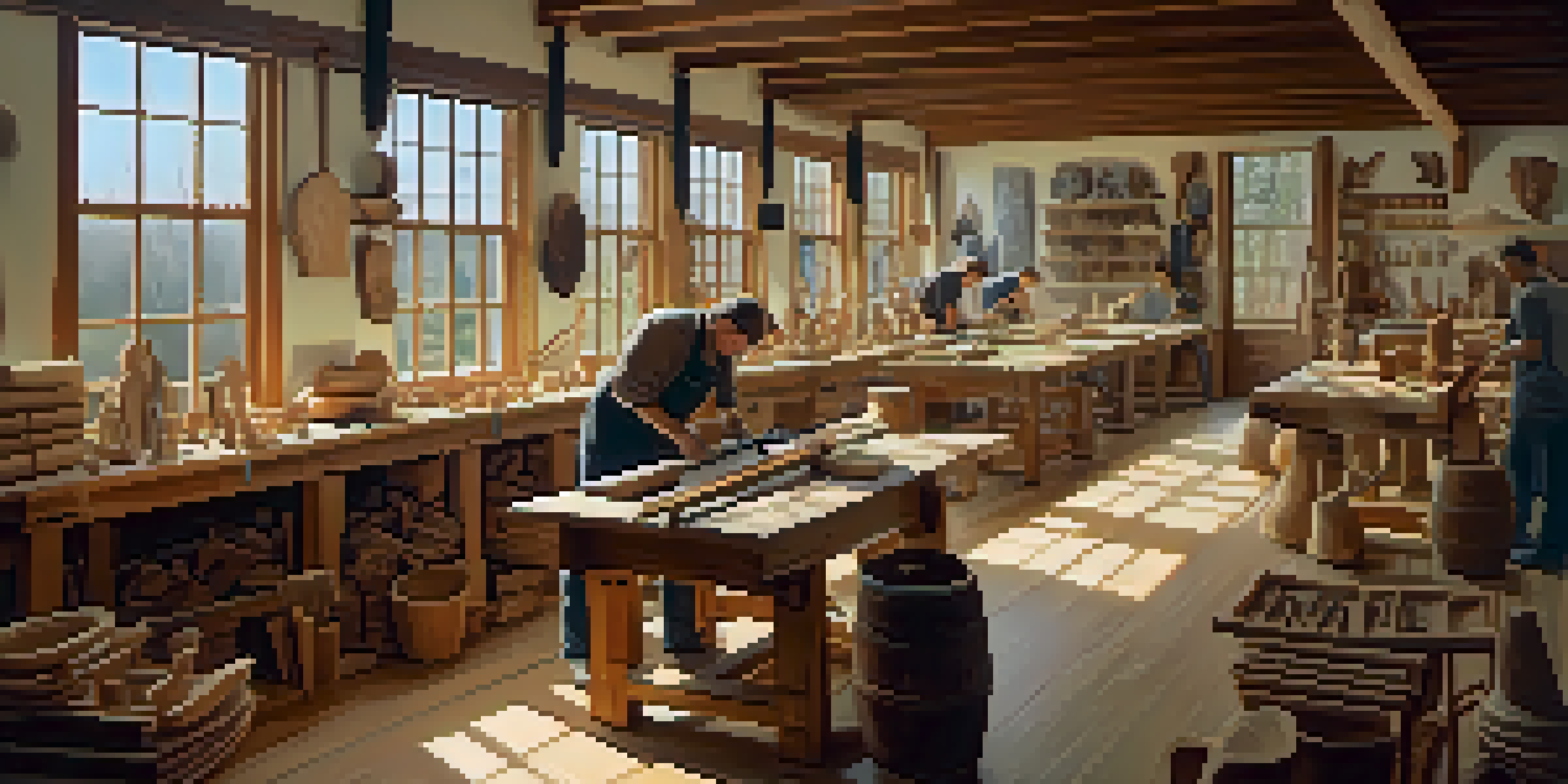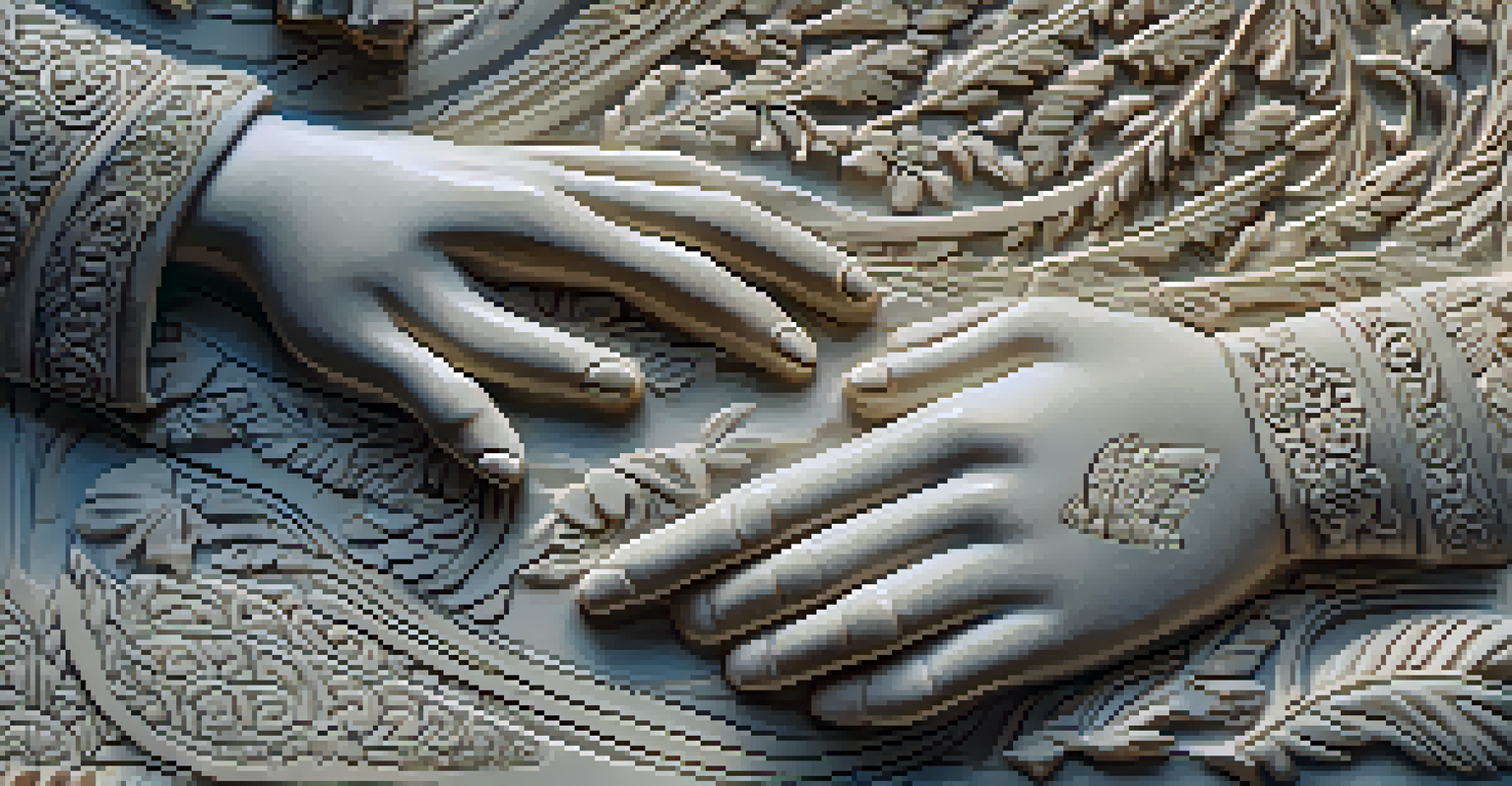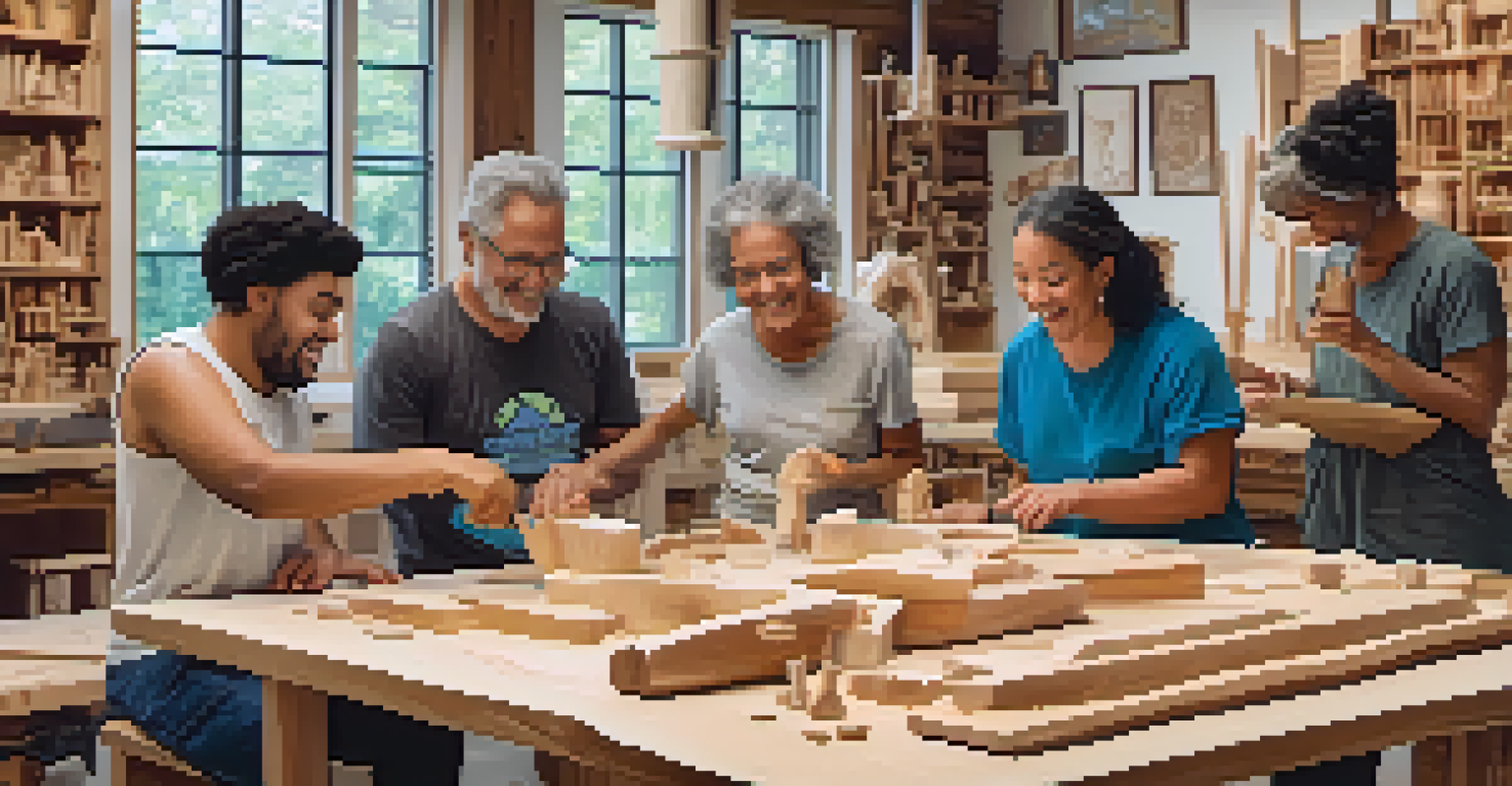Carving for Healing: Psychological Benefits of Creative Arts

The Healing Power of Creative Expression
Creative expression plays a vital role in mental well-being. Engaging in activities like carving allows individuals to channel their emotions into something tangible, providing a sense of accomplishment. This process can be particularly healing as it helps to articulate feelings that might be difficult to express verbally.
Every artist dips his brush in his own soul, and paints his own nature into his pictures.
When we carve, we focus our minds on the task at hand, which can serve as a form of mindfulness. This focused attention can reduce anxiety and promote relaxation, similar to meditation. As we immerse ourselves in the creative process, we often find clarity and peace.
Moreover, the act of creating something with our hands can foster a sense of control in our lives. In moments of chaos or uncertainty, carving provides a structured outlet that can help restore balance. This empowerment through creativity is a fundamental aspect of healing.
Understanding Art Therapy and Its Benefits
Art therapy is a therapeutic technique that utilizes creative expression to improve mental health. By engaging in art forms like carving, individuals can explore their emotions and experiences in a safe environment. This practice is particularly beneficial for those who find it challenging to articulate their feelings verbally.

Through art therapy, participants often experience reduced symptoms of anxiety and depression. The process of creating art allows for emotional release, helping individuals confront and process difficult experiences. This therapeutic relationship between artist and medium can be profoundly healing.
Creative Expression Aids Healing
Engaging in activities like carving allows individuals to channel emotions and promote mental well-being.
Additionally, art therapy offers a non-judgmental space for self-exploration. Clients are encouraged to express themselves freely, which can lead to insights and personal growth. The transformative power of art in therapy is increasingly recognized in mental health practices.
Carving as a Mindfulness Practice
Mindfulness is the practice of being present and fully engaged in the moment. Carving, with its repetitive motions and focused attention, can serve as an excellent mindfulness exercise. As you carve, the rhythmic nature of the task can help quiet the mind and foster a sense of calm.
Art enables us to find ourselves and lose ourselves at the same time.
This mindfulness practice allows for a deeper connection with oneself and the materials involved. Feeling the texture of the wood or the coldness of the stone can ground you in the present, making worries seem distant. Many find that this state of presence enhances their overall mood and well-being.
Moreover, carving can be a meditative experience. The concentration required can create a flow state, where time seems to disappear, and worries fade away. This immersion in the creative process is a powerful antidote to stress.
Building Community Through Creative Arts
Engaging in creative arts like carving can foster a sense of community. Whether through workshops or groups, sharing the experience of creating art can build connections among participants. These social interactions can combat feelings of isolation, which are often linked to mental health challenges.
Collaborative art projects can also enhance this sense of belonging. Working together on a carving project encourages communication and teamwork, which can be particularly beneficial for those facing social anxiety. The shared experience of creation can lead to lasting friendships and support systems.
Art Therapy Enhances Emotional Growth
Art therapy offers a safe space for self-exploration, leading to personal insights and reduced symptoms of anxiety and depression.
Moreover, showcasing carved creations in community exhibitions can instill pride and validation. Seeing one’s work appreciated by others can boost self-esteem and reinforce the idea that creativity is a valuable contribution to society.
The Therapeutic Effects of Focusing on Detail
Carving requires attention to detail, which can be incredibly therapeutic. Focusing on the intricacies of your work helps to distract from negative thoughts and anxieties. This concentration encourages a sense of accomplishment as you see your progress unfold.
The process of honing in on small details can also bring about a sense of patience and perseverance. As you navigate through challenges in your carving, you cultivate resilience, which is a key component of mental health. Overcoming these obstacles can lead to greater self-confidence.
Additionally, this attention to detail can serve as a reminder to appreciate the small things in life. The act of carving can teach you to find beauty in imperfection and to celebrate the journey of creation, rather than just the final product.
Carving: A Personal Journey of Self-Discovery
Every piece of carved art tells a story, often reflecting the artist's personal journey. As you carve, you're not just shaping wood or stone; you're also shaping your own narrative. This journey of self-discovery can reveal insights about your emotions and experiences.
Many find that the process of carving allows them to confront their inner struggles. Each cut and every shape can mirror feelings and thoughts, providing a canvas for self-reflection. This introspective aspect of carving can be both enlightening and liberating.
Mindfulness Through Carving Practice
Carving serves as a mindfulness exercise, fostering focus and calmness that can greatly enhance overall mood and well-being.
Carving can also serve as a means of leaving a legacy. Creating art that resonates with your experiences can connect you to others and inspire those who encounter your work. This sense of purpose can be incredibly fulfilling and affirming.
Incorporating Carving into Daily Life for Healing
Integrating carving into your daily routine can yield profound healing benefits. Setting aside even a few minutes each day to carve can create a consistent outlet for stress relief and emotional expression. This practice can become a cherished ritual that enhances your mental well-being.
Finding a dedicated space for carving can also help establish a calming environment. Whether it’s a cozy corner of your home or a workshop, having a designated area allows for focus and creativity to flourish. This intentional space can serve as a sanctuary for your creative spirit.

Lastly, don't hesitate to share your carving journey with others. Whether through social media, workshops, or local art shows, sharing your work can foster community and inspire others to explore their own creative outlets. Remember, every carving is a step toward healing and self-discovery.